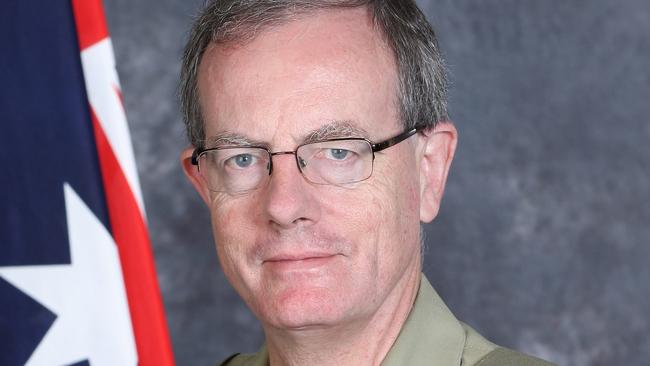Judge asks allies for insight into war crimes
The judge heading the inquiry into alleged war crimes in Afghanistan, has asked allied countries for advice.

Paul Brereton, the Supreme Court judge heading Australia’s inquiry into alleged war crimes in Afghanistan, has quietly travelled to allied countries to seek advice on how they conducted similar investigations
As Justice Brereton prepares to wrap up his two-year probe into possible war crimes, The Australian can reveal that he has visited several countries, including the US, Britain, Canada and New Zealand.
Those four countries, along with Australia, comprise the Five Eyes intelligence community, and were among Australia’s tightest allies during the decade-long Afghan campaign.
All of the Five Eyes countries have had to contend with allegations their soldiers committed atrocities while deployed in Afghanistan.
The International Criminal Court in The Hague is also investigating possible war crimes committed by the Taliban and coalition forces in Afghanistan.
Australia, which is a signatory to the Rome Statute of the ICC, is understood to have briefed the ICC on the Brereton inquiry.
In 2016 Justice Brereton was tasked by the Inspector-General of the Australian Defence Force with conducting a wide-ranging “scoping’’ inquiry into alleged misconduct in Afghanistan.
The inquiry followed months of persistent chatter within the ranks that a small number of Australian SAS troops had committed war crimes, including murder, during the long and bloody fight in Afghanistan.
While the exact terms of reference of Justice Brereton’s inquiry remain secret, the thrust of his brief is to sift gossip from fact, a process expected to pave the way for possible criminal investigations of breaches of the laws of armed conflict.
Justice Brereton’s inquiry was sparked by a 2015 briefing by special operations commander Jeff Sengelman to army chief Angus Campbell, which reported a series of failings of leadership and accountability “across the full span of command responsibilities’’.
The Weekend Australian reported on Saturday that the briefing cited “three notifiable incidents that occurred at SASR in quick succession’’.
One involved the arrest by West Australian police of an SAS member for “involvement in an armed robbery’’.
Another member reported that his civilian weapons, which he had kept incorrectly in a personal locker at Perth’s Campbell Barracks, had gone missing.
In another incident, the warrant officer in charge of ammunition at SAS headquarters was found to have been removing explosive ordnance and other property.
Sources inside Defence believe some of the claims being investigated by Justice Brereton will be deemed credible.
Privately, the Defence Department is bracing for the likelihood of criminal prosecutions, which are expected to be undertaken by the Australian Federal Police.
The Defence Department would not say where Justice Brereton had been during his investigation, but a spokesman confirmed investigators had made contact with a number of friendly governments. “The IGADF Afghanistan inquiry has liaised with coalition partners in order to gain a comparative perspective on how they have handled similar issues, and to ensure that its procedures are best practice in terms of their rigour and fairness,’’ a Defence spokesman told The Australian.
Investigators from the IGADF have interviewed more than 220 witnesses as part of the probe.
In March, the IGADF took out full-page advertisements in Afghan newspapers appealing for witnesses to come forward with information about possible war crimes.
The Defence Department would not say what response, if any, the ads had generated, nor whether investigators had interviewed Afghan citizens.
“In order to protect the integrity and independence of the inquiry, and the reputation of individuals who might otherwise be unfairly affected, no comment will be made on who may have been interviewed, what avenues of inquiry are being pursued, or what information has been received,’’ the spokesman said.
Many of the operations carried out by Australian troops were joint missions undertaken with coalition partners.
Justice Brereton is expected to hand his report to Chief of the Defence Force General Campbell by the end of the year.



To join the conversation, please log in. Don't have an account? Register
Join the conversation, you are commenting as Logout